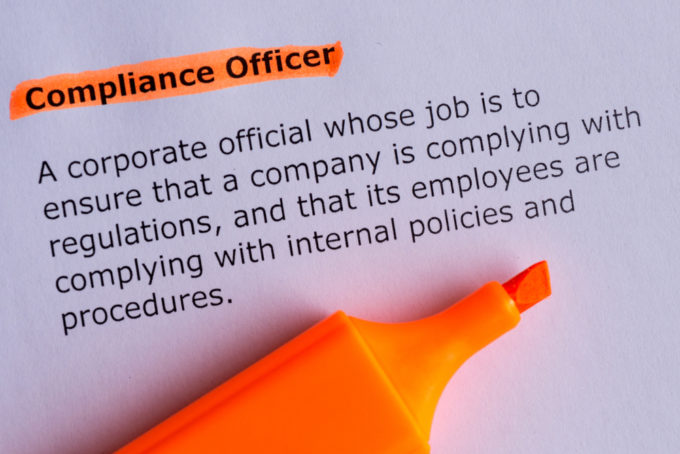
Like many trade compliance professionals, I go out and peruse various trade compliance newsletters, the U.S. government agencies websites, and other media to keep up-to-date on compliance issues. Recently, my attention was caught by a case involving Darling Industries of Tucson, Arizona.
A closer look at Empowered Officials
On February 28, 2019, the Directorate of Defense Trade Controls (DDTC) released the announcement of yet another Consent Agreement for violations of the ITAR. In this case, Darling Industries learned the hard way about the importance of maintaining an effective compliance program that encompasses ITAR and EAR regulations. Many of the violations noted are consistent with other Consent Agreements that the agency has issued against companies who have either failed to understand the requirements or have ignored their obligations to export properly under the ITAR. When reading these agreements, it is common to see violations of unauthorized exports of defense articles, defense services, or technical data related to the defense articles. However, what is not so common is to see DDTC charge a company with a violation of §120.25 (Empowered Official).
The requirement (as shown below) is very specific and relevant to a company’s compliance program functioning properly:
§120.25 Empowered Official
(a) Empowered Official means a U.S. person who:
-
Is directly employed by the applicant or a subsidiary in a position having authority for policy or management within the applicant organization; and
-
Is legally empowered in writing by the applicant to sign license applications or other requests for approval on behalf of the applicant; and
-
Understands the provisions and requirements of the various export control statutes and regulations, and the criminal liability, civil liability, and administrative penalizes for violating the Arms Export Control Act and the International Traffic in Arms Regulations; and
-
Has the independent authority to: (i) Inquire into any aspect of a proposed export, temporary import. Or brokering activity by the applicant; (ii)Verify the legality of the transaction and the accuracy of the information to be submitted; and (iii) Refuse to sign any license application or other request for approval without prejudice or other adverse recourse.
It’s interesting to note that DDTC specifically calls out Darling’s appointed compliance person as not being qualified under the above definition of an EO. In this case, DDTC stated that the Empowered Official did not have sufficient training or depth of background in the ITAR regulations to uphold their responsibilities; was not in a position having authority or management within the Darling organization; routinely prepared, signed, and submitted license applications that reflected a lack of understanding of the licensing process and the regulations; thereby placing the company in a position of not being competently able to comply with the terms and conditions of the license authorizations.
What does this mean for your Empowered Officials?
Today in many organizations, the appointed Empowered Official is likely to wear many hats. Their sole responsibility is not trade compliance. So, what does this latest Consent Agreement mean to all of us out in the compliance community, or for those individuals who have been newly appointed to such a position?
First, before you accept the responsibility of an Empowered Official, it’s critical that you understand what is expected of you by DDTC. A review of §120.25 and its requirements is essential to your success of not only being the Empowered Official, but also for any company who wishes to establish a successful compliance program.
Second, if you do not have the independent authority to stop a shipment, then it’s likely you will fail in your responsibilities as Empowered Official. This is particularly true for those end-of-month/end-of-quarter shipments when every organization is trying hard to “make its numbers.” But it can also be true for any shipment, export or transmission of data that you’re being asked to sign-off and authorize.
Next, how much training do you receive? If you do not have sufficient training that enables you to understand the regulations and interpret them, you should get this training now. It’s almost impossible to maintain a credible position as an Empowered Official without at minimum yearly compliance training. When looking for training, be sure that it not only fits your needs but that of the company’s to maintain effective compliance. If you are unable to travel, then consider hiring an Export Compliance Consultant to provide one-on-one training to you and your company.
Furthermore, you must have the backing of the company’s senior management in order to be successful as an Empowered Official. Without reinforcement from the top-down, the very concepts of compliance will never become part of the culture and an export compliance program will be meaningless. Besides, if management doesn’t support your decisions as the lead compliance person, then who will?
One final (and important) reminder
Finally, and maybe most important, while this did not happen with the Darling Consent Agreement, DDTC could have found the violations egregious enough to pursue a specific civil or criminal penalty against the individual (or individuals). This situation is not out of the realm of possibilities. That means, in addition to your company being liable, you as an individual Empowered Official can be held responsible for fines, penalties – and yes, even imprisonment – for violations. This is not a responsibility to take lightly.
If you or your company needs help understanding the roles of an Empowered Official, or how to create an effective compliance program for ITAR or EAR, schedule a no-charge consultation with one of our team members today. We would be happy to discuss further with you and help you succeed.
Beverly Demma is a Sr. Consultant for Export Solutions -- a full-service consulting firm specializing in U.S. import and export regulations.
